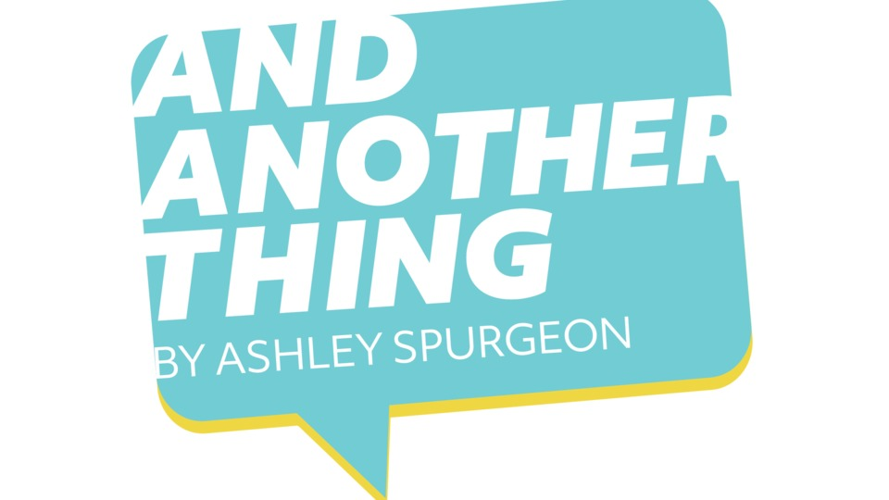
Ashley Spurgeon is a lifelong TV fan — nay, expert — and with her recurring television and pop-culture column "And Another Thing," she'll tell you what to watch, what to skip, and what's worth thinking more about.
I’ve gone on the record before as being a big fan of what can broadly be called “period dramas,” and I will sample pretty much any flavor. Roman legions? Crusades? 19th-century romances? 18th-century crimes? Biblical tales? Will watch. Country of origin doesn’t matter. My only real preferences are: Don’t make the characters feel too culturally “modern,” and make sure the costumes are right. (Unless you are the film Noah, in which case, it is extremely funny that everyone on Noah’s Ark is wearing pants.) I’ve recently watched two very different period miniseries with two very different attitudes to the genre.
Taboo, starring Tom Hardy, is deeply, deeply stupid. What taboos is he breaking? Whaddaya got? The year is 1812 and our antihero James (Hardy) is in love with his sister, and has spent the past 10 years in “Africa” (yes, that vague) doing cannibalism with his adoptive tribe. The bigger bad guys are the British and American governments as well as the East India Company, and, oh yeah, James' mother was Vancouver-area native and therefore an indigenous woman (Tom Hardy played this in 2017). And, oh yeah, James also survived the intentional sinking of a slave ship concocted to murder all the people on board.
So! It’s a lot! As you can imagine, it’s violent, gory, lurid and dumb. The entire reason I started it was because it also features Jessie Buckley, who I loved in War & Peace. (She’s good here too, but her Taboo character is pretty flat — an actress with a heart of gold.) The vibe throughout is tacky and immature, an “Isn’t this sick and twisted?” insistence. It's like, yeah, you got me — slavery and Empire are fucked up.
The goal with Taboo is — and I really think I can see the goal — to remind the viewer that, whew boy, all those period dramas you love so much? Well, actually, those times were bad. These times that we live in now are also bad, it reminds the viewer, via an American spy who looooves to torture — but hey, fair’s fair when it comes to global reputations. Obviously I can’t recommend this — I didn’t even finish the last 30 minutes of the last episode. I liked Tom Hollander as a nitrous-huffing chemist who was like, “We’re gonna need whore piss to make gunpowder.”
On the flipside of the period drama coin: Вольная грамота, translated as “Manumission” or “Free Papers.” But on Amazon, where I watched the series, it’s called Life of a Mistress — referring to a woman who runs a household, not a woman having an affair. Finding information about the show has involved a lot of Google Translate: I think it was a production for Russia’s most prominent (and mostly state-controlled) television network.
And, holy cow, it’s so good. If you, like me, are a deep lover of all the conventions of period dramas that Taboo tries so hard to tell you are dumb, Life of a Mistress serves up big, soapy platefuls of every one of them, with sugar on top. Our hero Polina (Tatyana Babenkova) is the definitive answer to the question we’ve all been asking: What if Jesus Christ has been a Russian woman raised from birth to believe she was part of the gentry but was, in fact, a serf? (Make no mistake, serfs are slaves, bought and sold, whipped and punished.)
Does Polina Pureheart suffer? Oh friend, indeed she suffers. She’s in love with the master’s younger brother, himself the most noble hero in the history of romance. When he gets his hands on a passport Polina can use to smuggle herself to freedom, what does he do? Finds the prostitute it was stolen from, returns it, and gives her some cash to run off and start a new life. This is another show fully aware that bad things are, in fact, bad, but this is a story more interested in heroes and honor than incestuous slaver cannibals.
Not to say the villains aren’t evil: Whoo boy, are they evil, all but twirling their mustaches and tying damsels to the tracks. There’s murder, attempted rape, casual aristocratic abuse of whomever they feel like abusing, seductions and a criminal organization that gets people to sign over their homes and possessions to the crime boss. No doubt there’s a lot of Russian cultural stuff I’m not picking up on (this show is how I learned Orthodox priests could have wives), but the broad strokes are the same as they are in most period romances. It’s long at 18 episodes and can be repetitive (Remember when Polina got sent to the coal pits? No? Well, here’s a montage anyway), but altogether, Вольная грамота aka Volnaya Gramota aka Free Papers aka Manumission aka Life of a Mistress is one of the best I’ve seen, and worth watching.




